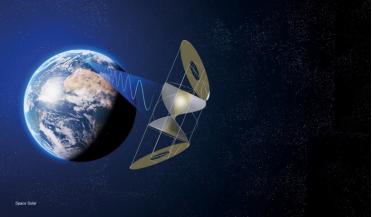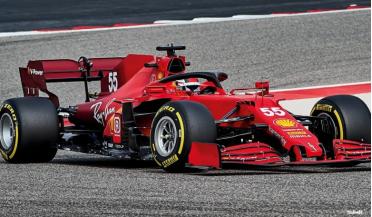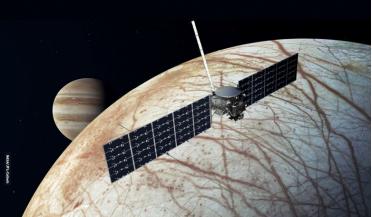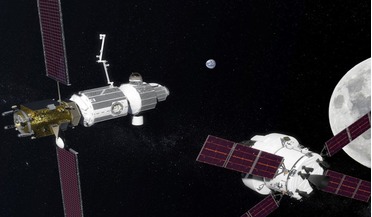 April 2024
Unlocking the NewSpace economy through space-based solar power
April 2024
Unlocking the NewSpace economy through space-based solar power
... utilisation, far more attractive, rather than just relying on surface solar or nuclear power. Spacecraft on exploration missions powered by electric propulsion could be given an additional SBSP-provided boost during their accelerating phase. This...
 April 2025
Strapped for success - from racetrack to orbit
April 2025
Strapped for success - from racetrack to orbit
.... These innovations would align with the growing vision of sustainable and scalable human presence on the Moon. As exploration missions push further into deep space, these systems will need to evolve to address new challenges, including prolonged...
 November 2025
Unlocking the secrets of Europa
November 2025
Unlocking the secrets of Europa
... reach Jupiter. International collaboration The quest to explore Europa is a global endeavour. NASA’s Europa Clipper mission complements the European Space Agency’s JUICE (Jupiter Icy Moons Explorer) mission, which will also study Europa, along with...
 11 February 2016
$19 Billion NASA Budget Proposed by White House
11 February 2016
$19 Billion NASA Budget Proposed by White House
... impossible.” Radzanowski said that the budget supports a 2018 launch of the first SLS/Orion mission, Exploration Mission (EM) 1, and a 2023 launch of EM-2. Progress made to date thanks to increased funding, though, could still allow an EM-2 launch...
 18 June 2018
ESA Council backs Lunar gateway venture
18 June 2018
ESA Council backs Lunar gateway venture
... European contributions to an international Mars Sample Return mission or other sample return missions; and examining scenarios and mission concepts for lunar exploration missions supporting the objectives of the European scientific community...
 13 August 2018
NASA to partner with six US companies to develop space exploration technologies
13 August 2018
NASA to partner with six US companies to develop space exploration technologies
... space sector that leverage emerging markets and capabilities to meet NASA's exploration goals. While these key technologies will support NASA's science and human exploration missions in the future, these awards are yet another example of NASA...